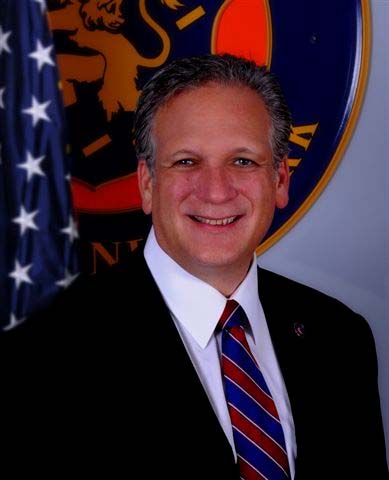
On the morning of August 22, 2025, Punjab woke up to silence where there was once laughter. Jaswinder Singh Bhalla, the beloved comedian, actor, and professor who lit up stages, classrooms, and cinema screens for more than three decades, passed away at Fortis Hospital, Mohali, at the age of 65. His death has left both the Punjabi entertainment world and the academic community mourning a man whose gift for humor was matched only by his commitment to education.
The Roots of a Comic Genius
Born in Doraha, Ludhiana district, Jaswinder Bhalla grew up in an agricultural family where rustic humour was a natural part of everyday life. The sharp wit that Punjab’s villages are known for would later become his professional trademark.
After excelling in academics, Bhalla earned his B.Sc (Hons) Agriculture and M.Sc in Extension Education from PAU and later completed his Ph.D. from Chaudhary Charan Singh University (CCS), Meerut. His academic excellence landed him a job in the Punjab Agriculture Department, where he served for five years before joining PAU in 1989 as a faculty member.
But even as a student, Bhalla’s love for comedy was evident. Friends recall him as the life of college functions, always ready with a witty observation or an impromptu skit. “He could turn any serious discussion into laughter without offending anyone,” says Dr. H.S. Sidhu, his contemporary at PAU.
Chhankata: A Revolution in Punjabi Satire
In 1988, Bhalla co-created Chhankata, a series of satirical stage and audio-video performances recorded for home distribution. Characters like Chacha Chatar Singh, Nona, Bhana, and Taya became cultural icons. These sketches lampooned political corruption, social hypocrisy, NRI culture, and generational divides.
Long before social media, Chhankata cassettes spread like wildfire, turning Bhalla into a household name. Farmers played them in tractors during harvest season; shopkeepers kept them running in markets; families rewound punchlines so often that the tapes wore thin.
“Chhankata wasn’t just comedy. It was commentary. He spoke truths in a language people understood-through laughter,” recalls Dr. T.S. Riar, Additional Director of Communication at PAU.
Even today, Chhankata’s dialogues resurface as memes and reels. Bhalla’s knack for singing Punjabi song parodies gave the sketches a musical charm. In many cases, people remembered Bhalla’s parodies longer than the original songs themselves.
From Stage to Silver Screen
Bhalla’s transition to cinema was as seamless as his jokes. His film career started with Dulha Bhatti and Jaspal Bhatti’s satire Mahaul Theek Hai (1999). His authentic village persona made him a natural fit for Punjabi films in the 2000s and beyond.
He went on to star in some of the biggest hits of Punjabi cinema:
– Jatt and Juliet (2012) and Jatt and Juliet 2 (2013)
– Sardaar Ji (2015)
– Chak De Phatte (2008)
– Daddy Cool Munde Fool (2013)
– And most memorably, the Carry On Jatta trilogy (2012, 2018, 2023), where his portrayal of Advocate Dhillon became legendary.
His catchphrases, rural humor, and impeccable timing made even his brief appearances stand out. Bhalla didn’t just deliver jokes-he delivered personalities.
His last film appearance, Shinda Shinda No Papa (2024), with Gippy Grewal and Hina Khan, reaffirmed his ability to stay relevant even after three decades in showbiz.
“There will never be another Jaswinder Bhalla,” says Gippy Grewal. “He made every set feel like a family gathering. Even if you were nervous, his presence would put you at ease-then he’d crack a joke and the whole crew would burst out laughing.”
The Scholar Who Never Stopped Teaching
Away from the limelight, Bhalla was Dr. Jaswinder Singh Bhalla, a professor and Head of the Department of Extension Education at PAU. His lectures were famous for their clarity and humor. Students remember him not only as a scholar but as a mentor who taught life lessons through anecdotes and laughter.
“He could explain complex agricultural concepts using stories about everyday village life. We never forgot a single lesson because he made learning enjoyable,” says Ravneet Kaur, one of his former students.
Bhalla continued to juggle films and teaching, carefully balancing his dual identity. Despite his fame, he never left academia, proving that intellect and entertainment can thrive together. He retired in 2020, but often expressed regret that the pandemic prevented him from receiving a farewell from his students-a moment he called his “lifelong sorrow.”
A Family of Artists
Bhalla is survived by his wife Parmdeep, a fine arts teacher in Chandigarh, and son Pukhraj Bhalla, who followed in his father’s footsteps into Punjabi cinema. Initially trained as an engineer, Pukhraj shifted to acting, appearing in both films and web series.
The father-son duo shared screen space in Stupid 7 (2013), a cherished memory for fans who loved seeing their camaraderie on screen.
“My father never told me to become an actor. He told me to be honest to whatever I do. He always said, ‘Comedy is serious work. If you do it casually, people won’t laugh,” recalls Pukhraj Bhalla.
A Voice of Courage and Compassion
What made Bhalla’s humor unique was its absence of malice. He exposed flaws in society but never mocked ordinary people. His satire had courage-pointing fingers at politicians, bureaucracy, and cultural pretensions-yet it was always compassionate.
“He laughed with people, not at them,” says Satinder Satti, Punjabi actress and TV host. “That’s why everyone-from villagers to NRIs to big politicians-loved him. Even when he made fun of you, you couldn’t help but laugh.”
The Legacy Lives On
As Punjab mourns the loss of a legend, tributes are pouring in from across the globe. Former students remember the professor who taught them to think critically. Fans remember the comedian who made every festival brighter. Co-stars remember the man who brought joy even in the toughest shooting schedules.
Bhalla’s legacy lies in his ability to blend education with entertainment, intellect with humor, and fame with humility.





Be the first to comment